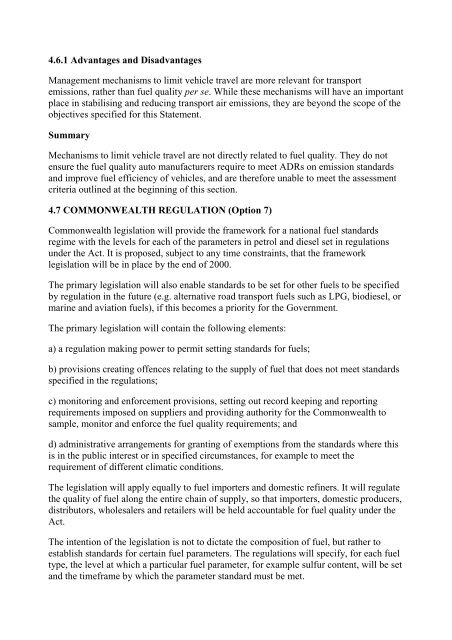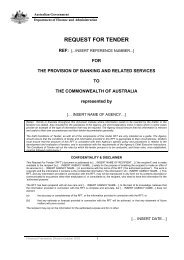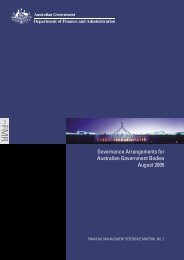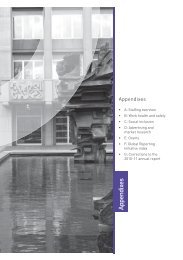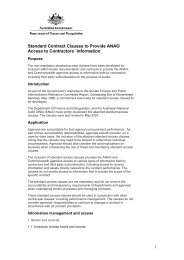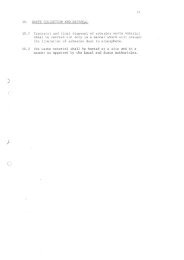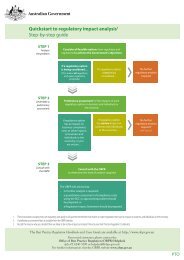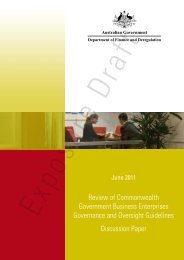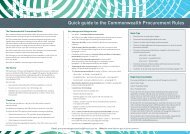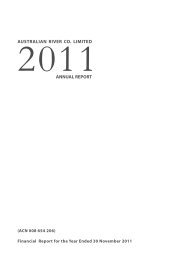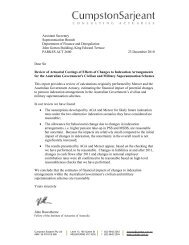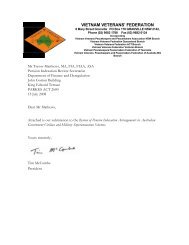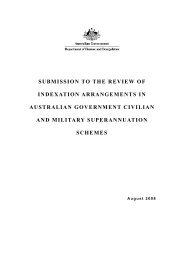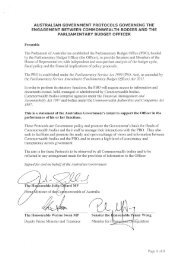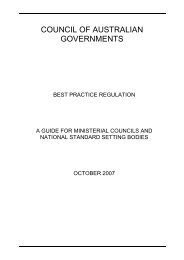National Fuel Quality Standards Regulation Impact Statement 1 ...
National Fuel Quality Standards Regulation Impact Statement 1 ...
National Fuel Quality Standards Regulation Impact Statement 1 ...
You also want an ePaper? Increase the reach of your titles
YUMPU automatically turns print PDFs into web optimized ePapers that Google loves.
4.6.1 Advantages and Disadvantages<br />
Management mechanisms to limit vehicle travel are more relevant for transport<br />
emissions, rather than fuel quality per se. While these mechanisms will have an important<br />
place in stabilising and reducing transport air emissions, they are beyond the scope of the<br />
objectives specified for this <strong>Statement</strong>.<br />
Summary<br />
Mechanisms to limit vehicle travel are not directly related to fuel quality. They do not<br />
ensure the fuel quality auto manufacturers require to meet ADRs on emission standards<br />
and improve fuel efficiency of vehicles, and are therefore unable to meet the assessment<br />
criteria outlined at the beginning of this section.<br />
4.7 COMMONWEALTH REGULATION (Option 7)<br />
Commonwealth legislation will provide the framework for a national fuel standards<br />
regime with the levels for each of the parameters in petrol and diesel set in regulations<br />
under the Act. It is proposed, subject to any time constraints, that the framework<br />
legislation will be in place by the end of 2000.<br />
The primary legislation will also enable standards to be set for other fuels to be specified<br />
by regulation in the future (e.g. alternative road transport fuels such as LPG, biodiesel, or<br />
marine and aviation fuels), if this becomes a priority for the Government.<br />
The primary legislation will contain the following elements:<br />
a) a regulation making power to permit setting standards for fuels;<br />
b) provisions creating offences relating to the supply of fuel that does not meet standards<br />
specified in the regulations;<br />
c) monitoring and enforcement provisions, setting out record keeping and reporting<br />
requirements imposed on suppliers and providing authority for the Commonwealth to<br />
sample, monitor and enforce the fuel quality requirements; and<br />
d) administrative arrangements for granting of exemptions from the standards where this<br />
is in the public interest or in specified circumstances, for example to meet the<br />
requirement of different climatic conditions.<br />
The legislation will apply equally to fuel importers and domestic refiners. It will regulate<br />
the quality of fuel along the entire chain of supply, so that importers, domestic producers,<br />
distributors, wholesalers and retailers will be held accountable for fuel quality under the<br />
Act.<br />
The intention of the legislation is not to dictate the composition of fuel, but rather to<br />
establish standards for certain fuel parameters. The regulations will specify, for each fuel<br />
type, the level at which a particular fuel parameter, for example sulfur content, will be set<br />
and the timeframe by which the parameter standard must be met.


